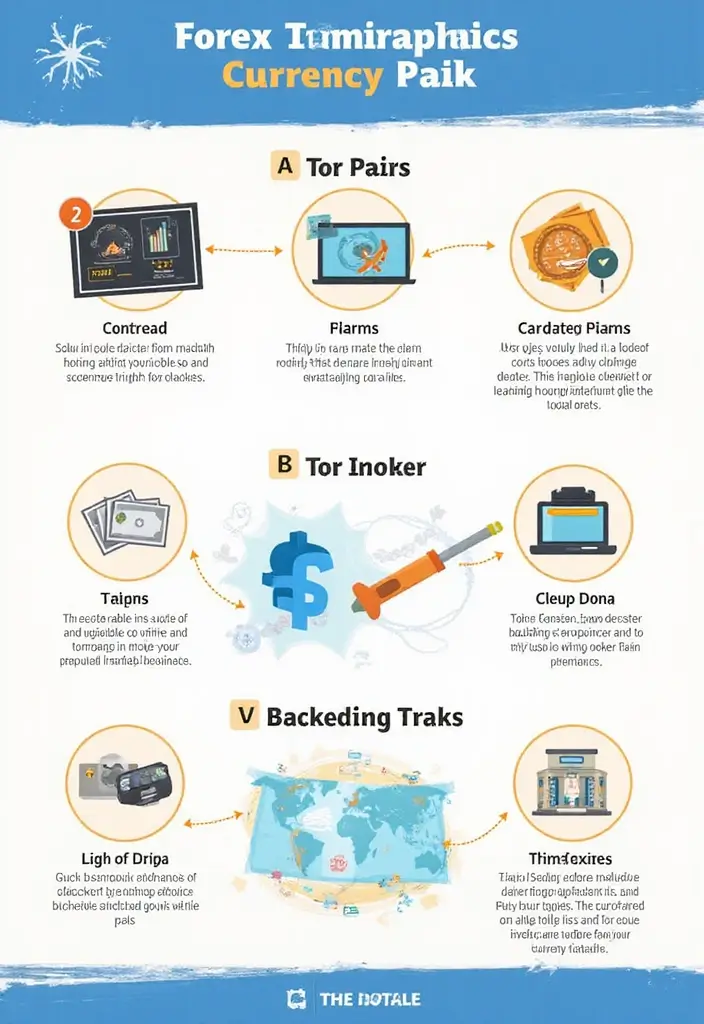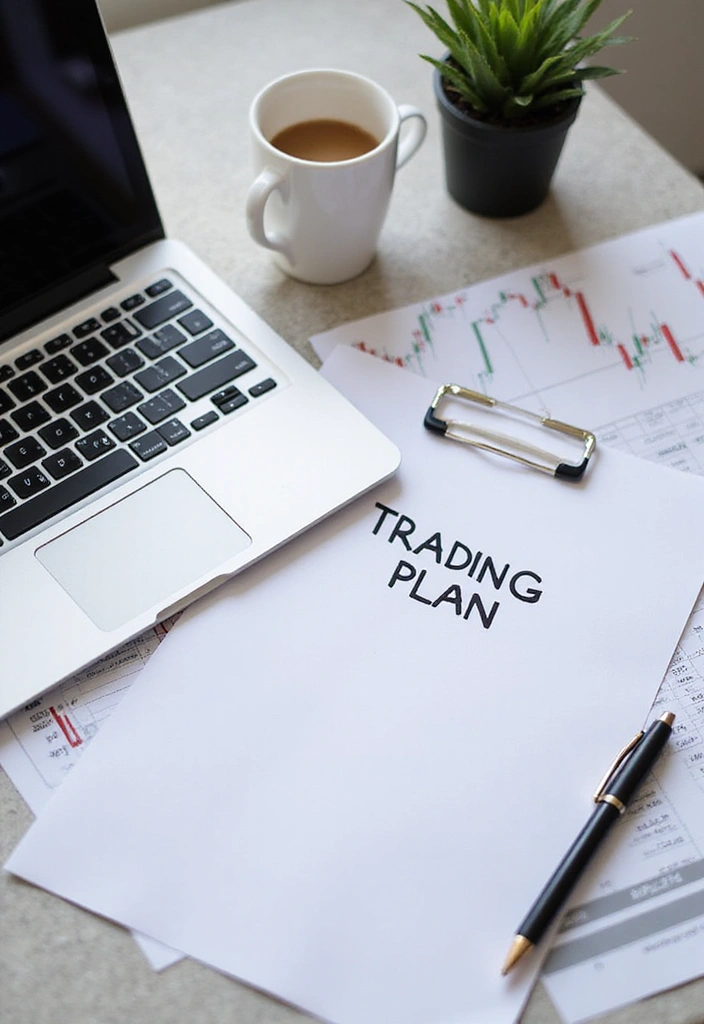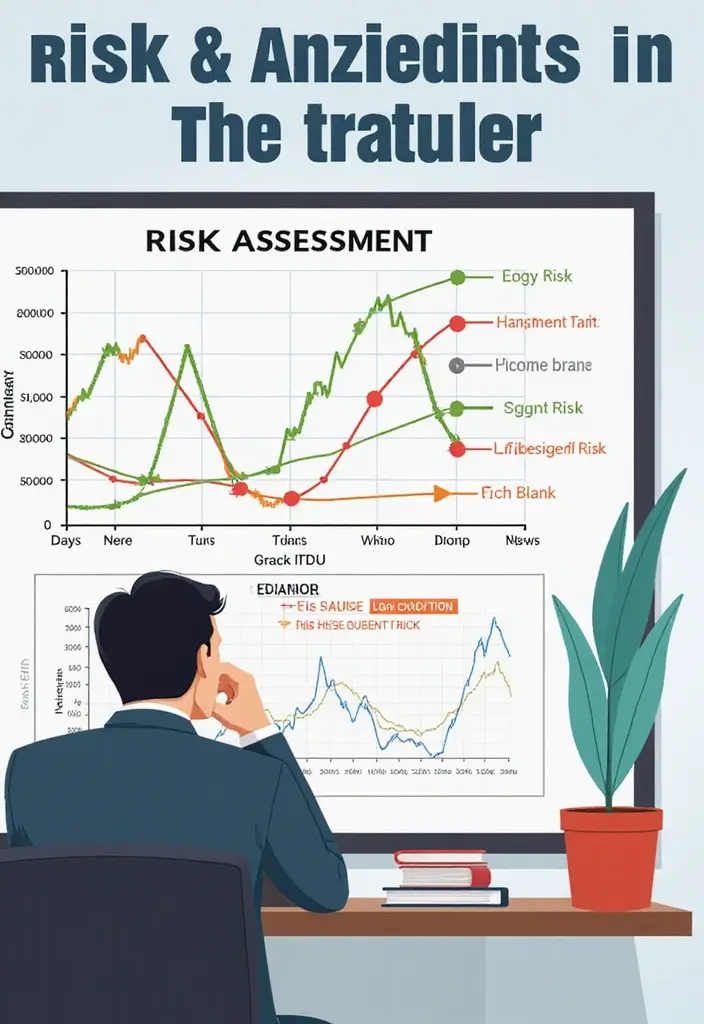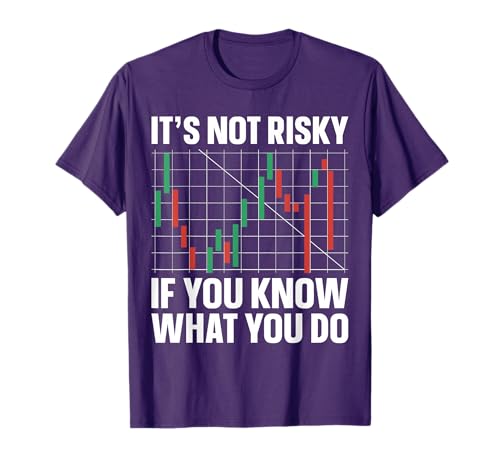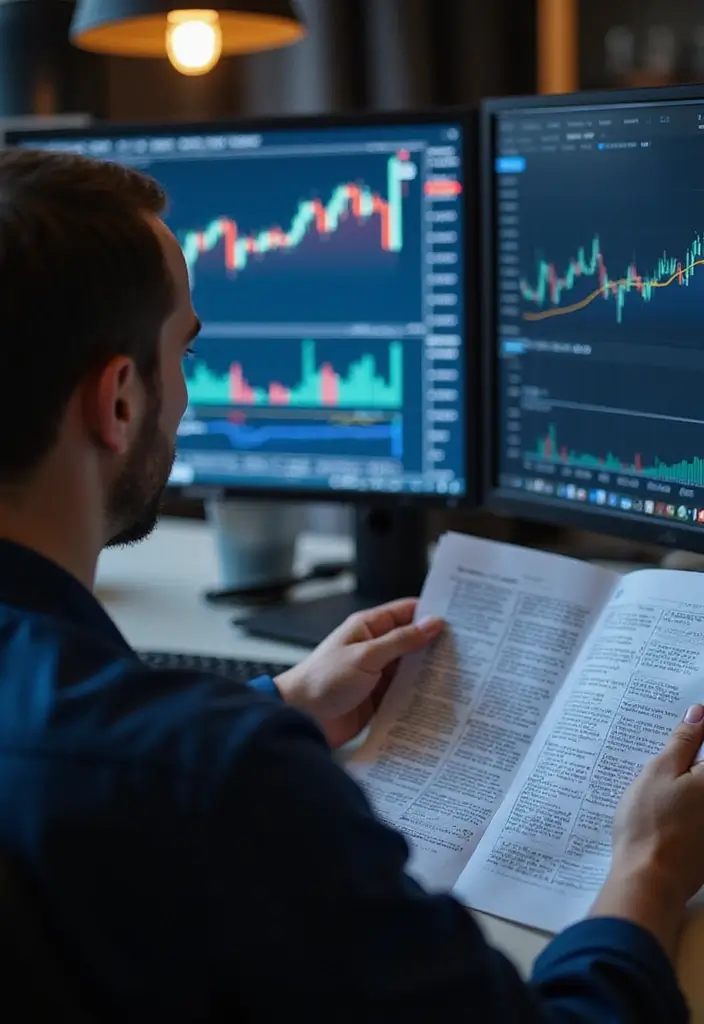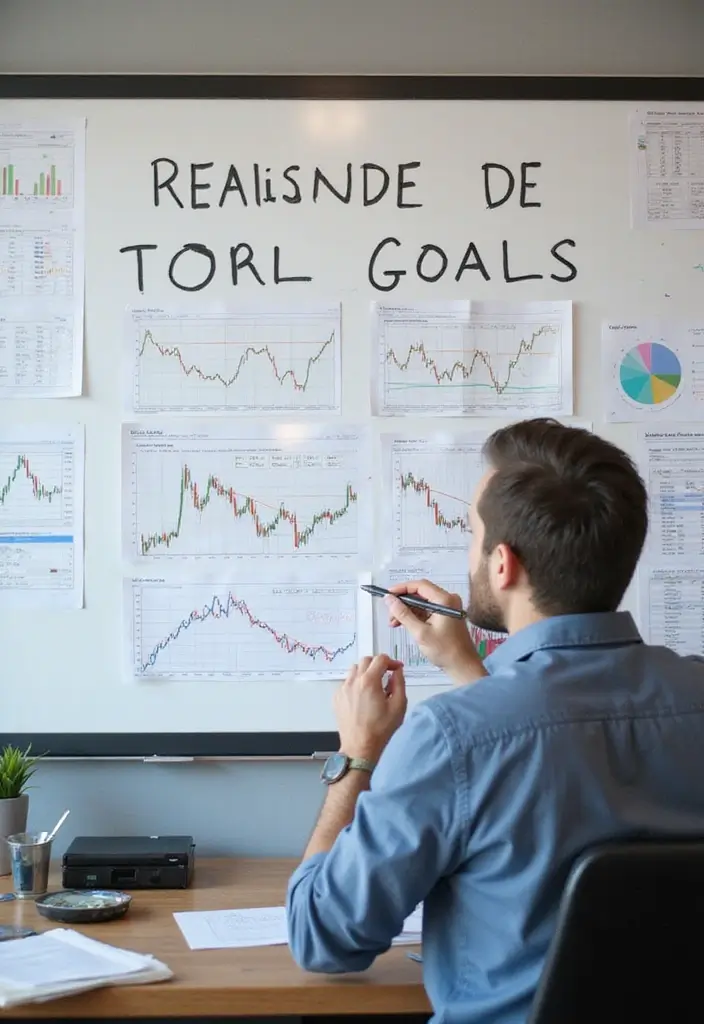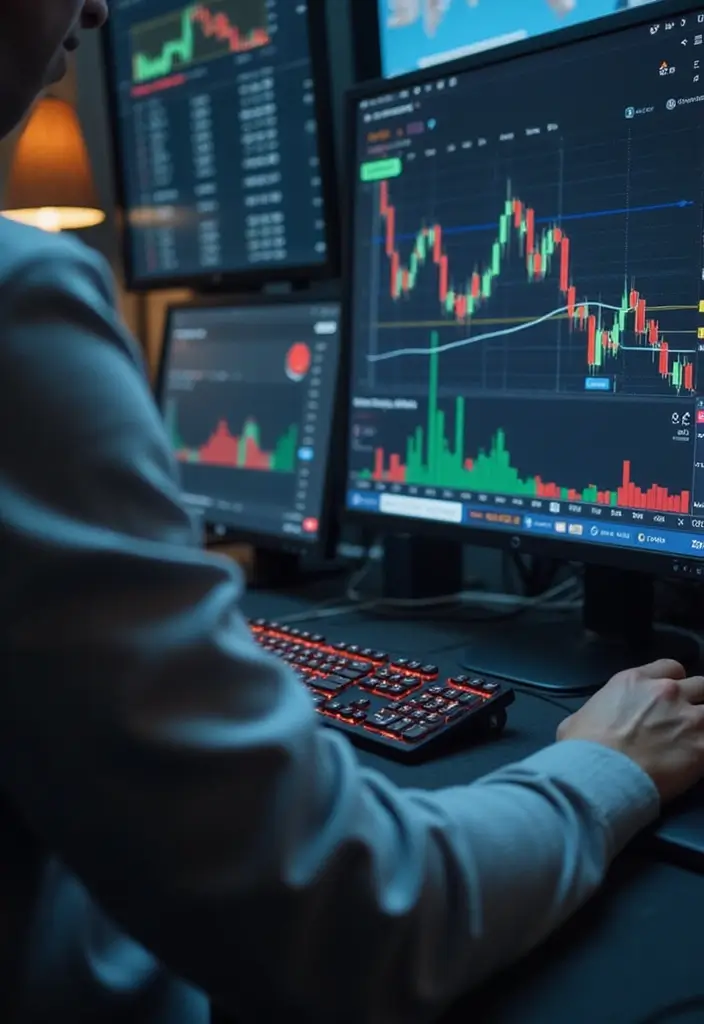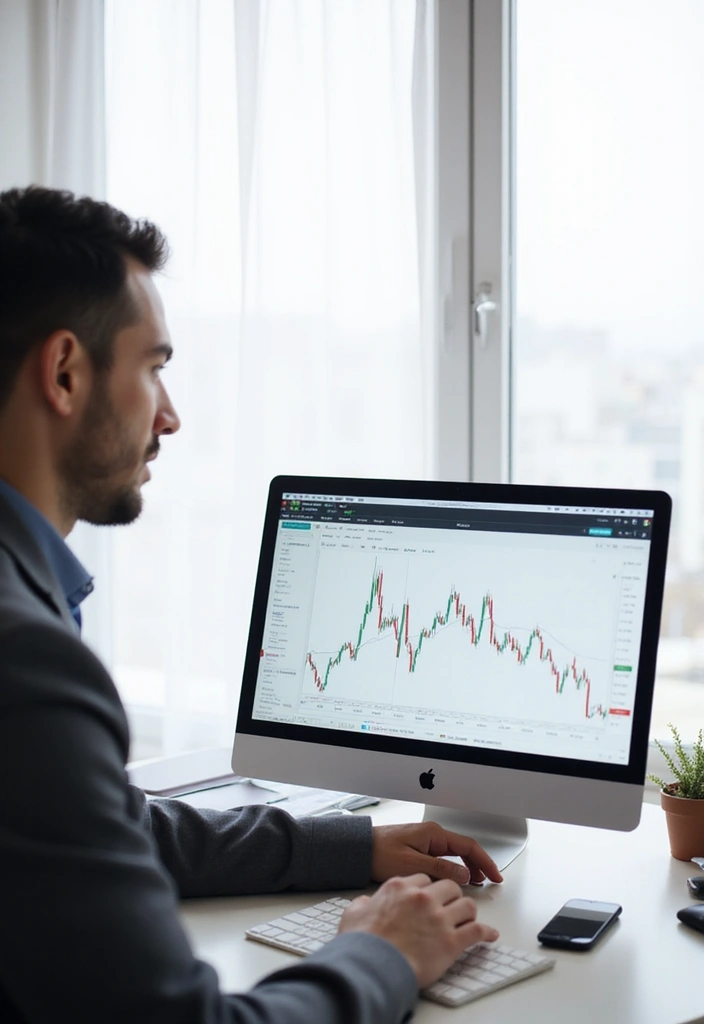Stepping into the world of Forex trading can feel like embarking on an adventure filled with potential rewards and risks. The thrill of trading currencies is captivating, yet it comes with its fair share of challenges that can lead to losses if you’re not prepared.
For beginners, understanding the nuances of the market is essential to navigate successfully. It’s not just about making trades; it’s about developing a strategy, mastering the psychology of trading, and implementing effective risk management.
In this guide, you’ll discover 27 practical Forex trading tips that can help you minimize losses and enhance your trading experience. Each tip is designed to give you insights and actionable strategies to build your confidence, improve your skills, and increase your chances of success in the currency market.
1. Understand Forex Trading Basics
The foundation of successful Forex trading lies in a solid understanding of its basics. Start by familiarizing yourself with key concepts such as currency pairs, pips, and spreads.
Develop a strong grasp of how the Forex market operates, including market hours, major players, and how economic indicators influence currency movements. Utilize online resources, trading forums, and educational videos to build your knowledge base.
The more informed you are, the better prepared you’ll be to make strategic decisions.
– Study major currency pairs like EUR/USD and USD/JPY.
– Review market hours and understand when trading is most active.
– Follow financial news to see how it impacts currency fluctuations.
2. Develop a Trading Plan
Creating a trading plan is crucial for maintaining discipline and focus. A well-structured trading plan outlines your goals, risk tolerance, trading strategies, and rules for entering and exiting trades.
Include detailed sections covering your preferred trading style, whether it’s scalping, day trading, or swing trading. Also, determine the amount of capital you’ll allocate to trading and the maximum loss you’re willing to accept for each trade.
By sticking to your trading plan, you empower yourself to make rational decisions rather than emotional ones.
– Define your goals: Are you aiming for long-term gains or short-term profits?
– Assess your risk tolerance: How much can you afford to lose?
– Set clear rules for trade entries and exits.
3. Master Risk Management
In Forex trading, implementing effective risk management is vital to protect your capital. One common strategy is to risk only a small percentage of your trading account on any single trade, typically around 1-2%.
Setting stop-loss orders is another crucial aspect. A stop-loss order automatically closes a trade at a predetermined price, helping you limit potential losses.
Always assess the risk-reward ratio before entering a trade, aiming for a ratio of at least 1:2. This means for every unit you risk, you should target a potential profit of two units.
– Determine your risk percentage for each trade.
– Place stop-loss orders to safeguard your investments.
– Calculate risk-reward ratios to ensure favorable trades.
4. Keep a Trading Journal
A trading journal serves as a powerful tool for reflection and improvement. Documenting your trades allows you to analyze what works and what doesn’t, providing invaluable insights into your trading behavior.
Include details such as entry and exit points, trade size, your reasons for entering the trade, and the outcome. Periodically review your journal to identify patterns in your decision-making.
This practice cultivates self-awareness and helps you refine your strategies over time.
– Track your emotions during trades to understand psychological influences.
– Note down any mistakes and the lessons learned from them.
– Set aside time weekly to review your trading journal.
5. Learn to Control Your Emotions
Trading psychology plays a significant role in your success as a Forex trader. Emotions like fear and greed can cloud your judgment and lead to poor decisions.
Developing emotional discipline is key. Set clear rules for your trading activities and stick to them, regardless of market fluctuations.
Practicing mindfulness can help you stay calm during volatile market conditions. Remember, losses are part of the trading journey, so don’t let them dictate your actions.
– Develop a routine to manage stress, such as meditation or exercise.
– Avoid over-trading driven by the thrill of the market.
– Recognize emotional triggers and develop strategies to cope with them.
6. Stay Informed about Economic News
Economic news releases can significantly impact currency prices, making it essential for Forex traders to stay informed. Key indicators such as unemployment rates, GDP growth, and central bank decisions can cause fluctuations in currency values.
Use economic calendars to track upcoming news events and their expected impact. Be cautious around major announcements, as volatility can result in slippage or whipsaw price movements.
By keeping abreast of economic developments, you can make timely decisions and capitalize on market opportunities.
– Subscribe to financial news outlets for real-time updates.
– Review historical reactions of currency pairs to similar news events.
– Adjust your trading strategy according to news impacts.
7. Choose the Right Broker
Selecting a reputable Forex broker is a critical step in your trading journey. Research different brokers to find one that aligns with your trading goals and offers the tools and resources you need.
Key factors to consider include the broker’s regulation, trading platform usability, spreads, commissions, and customer support. Additionally, ensure that the broker provides access to demo accounts so you can practice trading without risking real money.
Your broker is a gateway to the Forex market, so choose wisely.
– Read reviews and check regulatory compliance.
– Test the trading platform with a demo account.
– Evaluate the customer support options available.
Choosing the right Forex broker is like picking a trusty compass for your trading journey. Do your homework, and find a partner who guides you towards success!
8. Practice on a Demo Account
Before diving into live trading, it’s wise to practice on a demo account. Demo accounts allow you to trade with virtual money, offering a risk-free environment to learn the ropes.
Use this opportunity to familiarize yourself with the trading platform, test different strategies, and refine your skills without the pressure of real losses. Create a simulation of your trading plan and stick to it as if it were real-money trading.
The experience you gain will translate into confidence and preparedness when you decide to trade with real funds.
– Experiment with various trading strategies on the demo account.
– Analyze the impact of different market conditions without risk.
– Treat the demo trading like actual trading for better results.
9. Start Small and Scale Up
When you begin live trading, it’s advisable to start with small trades. Starting small allows you to gain real-world experience without putting a significant amount of capital at risk.
As you build confidence and begin to see consistent results, you can gradually scale up your trading size. This approach helps maintain emotional control as you learn to manage potential losses and gains. Remember, patience is key.
– Set a low-capital limit for your initial trades.
– Keep emotions in check as you scale up your trading size.
– Always adhere to your risk management strategies.
10. Utilize Technical Analysis
Technical analysis is a staple in Forex trading and involves analyzing historical price movements to forecast future trends. Familiarize yourself with key indicators like moving averages, RSI, and MACD.
Learning chart patterns, candlestick formations, and support and resistance levels can provide insights into market behavior. Incorporating technical analysis into your trading strategy can help you make informed decisions.
– Practice using different indicators to find what resonates with you.
– Combine multiple tools for a comprehensive analysis.
– Stay objective and avoid overcomplicating your charts.
11. Explore Fundamental Analysis
While technical analysis focuses on price data, fundamental analysis considers economic and political factors affecting currency values. Understanding macroeconomic indicators, interest rates, and geopolitical events can offer valuable context for market movements.
Set aside time to study major economic reports and their implications for the currencies you trade. Combining fundamental analysis with technical insights creates a more holistic trading strategy.
– Follow economic calendars to stay ahead of important releases.
– Analyze how news affects currency pairs in real time.
– Look for correlations between economic indicators and currency performance.
12. Focus on a Few Currency Pairs
As a beginner, it’s wise to concentrate on a few currency pairs rather than trying to trade them all. This approach allows you to become more familiar with their behaviors, market conditions, and trends.
Choose major currency pairs like EUR/USD or GBP/USD, as they tend to have higher liquidity and tighter spreads. By specializing, you can develop a deeper understanding of those pairs and make more informed trading decisions.
– Limit your focus to 2-3 pairs at first.
– Monitor news and economic events related to your selected pairs.
– Track their historical performance to identify patterns.
13. Keep Up with Market Trends
Staying updated with current market trends is essential for successful trading. Identify the overarching trends, whether bullish or bearish, and align your trades accordingly.
Tools like moving averages and trend lines can help you visualize trends and navigate changing market conditions. Remember, the trend is your friend, so adapting your strategies to align with prevailing trends can significantly improve your trading outcomes.
– Use trend indicators to confirm market directions.
– Adjust your trading strategy based on identified trends.
– Always evaluate the possibility of trend reversals.
14. Avoid Over-Leveraging
Leverage can amplify both gains and losses, so it’s important to use it wisely. While it can be tempting to trade with high leverage to increase potential profits, doing so can also inflate your risks significantly.
Start with lower leverage levels, gradually increasing as you gain experience and confidence in your trading skills. Ensure you understand how leverage works and how it impacts your overall trading strategy.
– Familiarize yourself with your broker’s leverage options.
– Calculate how leverage affects your account balance.
– Stick to a risk management plan even when using leverage.
15. Embrace Continuous Learning
Forex trading is an ever-evolving field, and staying ahead requires a commitment to continuous learning. Attend webinars, read books, and consider enrolling in trading courses to enhance your skills.
Engage with online trading communities where you can exchange ideas and learn from others’ experiences. The more you expand your knowledge, the more adept you’ll become at navigating the complex world of Forex trading.
– Schedule regular time for education, staying updated on trends.
– Take part in discussions on trading forums or social media.
– Experiment with new strategies and adjust based on results.
16. Control Your Trading Environment
Your trading environment can influence your performance, so it’s vital to create a space that supports focus and productivity. Ensure your workspace is organized, with minimal distractions.
Consider ergonomics—an uncomfortable chair or a cluttered desk can hinder your ability to concentrate on trading. A well-structured environment fosters good trading habits and enhances your overall experience.
– Keep your trading area tidy and free of clutter.
– Ensure your computer setup is comfortable for long sessions.
– Use tools and resources that promote efficiency.
17. Avoid Chasing Losses
One of the biggest pitfalls in trading is chasing losses. After a loss, many traders feel the urge to quickly make back their money, often leading to hasty decisions that can worsen the situation.
Instead of impulsively entering trades, take a step back to reassess your strategy and emotions. Establish a rule to avoid trading immediately after a loss, allowing yourself time to regain composure.
– Recognize the emotional triggers that lead to chasing losses.
– Maintain a disciplined approach, regardless of past trades.
– Review your plan and strategy after a loss before making new trades.
18. Set Realistic Profit Targets
Setting realistic profit targets is essential for maintaining a balanced perspective on trading. While it’s great to aim for high returns, having unattainable goals can lead to disappointment and hasty decisions.
Define achievable profit targets based on your trading style and market conditions. Adjust your expectations according to your experience level and the volatility of the currency pairs you are trading.
– Set short-term and long-term profit goals.
– Regularly reassess your targets as you gain more experience.
– Celebrate small wins as part of your trading journey.
19. Use Stop-Loss and Take-Profit Orders
Incorporating stop-loss and take-profit orders into your trading strategy is a crucial risk management practice. A stop-loss order helps limit your losses by automatically closing a trade when it reaches a certain price.
Similarly, a take-profit order secures your profits when your target price is reached. These orders remove emotions from the decision-making process, allowing you to trade with greater discipline.
– Always set stop-loss orders for every trade.
– Determine take-profit levels based on your analysis.
– Review and adjust your orders as market conditions change.
20. Understand Market Sentiment
Market sentiment refers to the overall attitude of traders towards a particular currency pair, often driven by news or economic conditions. Understanding sentiment can guide your trading decisions.
Use tools like sentiment indicators or analyze Forex news to gauge the prevailing market mood. Being aware of market sentiment allows you to align your trades with the collective behavior of traders, enhancing the odds of success.
– Monitor sentiment indicators for insights into market psychology.
– Consider how news events may shift trader sentiment.
– Make informed decisions based on overall market sentiment.
21. Limit the Use of Indicators
While technical indicators can be helpful, relying too heavily on them can lead to analysis paralysis. Instead, focus on a few effective indicators that align with your trading strategy.
Simplicity often leads to clarity in decision-making. Combine different types of indicators, such as trend and momentum indicators, to create a balanced approach without overcomplicating your analysis.
– Choose indicators that you understand well.
– Test your indicators in a demo account before live trading.
– Limit the number of indicators to reduce confusion.
22. Take Breaks When Needed
Trading can be intense, and prolonged focus can lead to burnout. Recognizing the signs of fatigue and taking regular breaks is essential for maintaining optimal performance.
Stepping away from your screen allows you to clear your mind and return with a fresh perspective. Schedule breaks during trading sessions and use that time to recharge or reflect on your strategy.
– Set a timer to remind yourself to take breaks.
– Engage in activities that relax and distract you from trading.
– Return to trading with renewed focus and clarity.
23. Be Prepared for Market Volatility
The Forex market is inherently volatile, with prices fluctuating rapidly due to economic reports, geopolitical events, and other factors. As a trader, it’s important to be prepared for unexpected price movements.
Adopting a flexible trading strategy can help you navigate volatile conditions. Avoid making hasty decisions during market upheavals and stick to your plans and analysis.
– Identify your maximum acceptable loss during turbulent times.
– Use smaller position sizes during high volatility.
– Stay informed about news events that could impact volatility.
24. Network with Other Traders
Engaging with fellow traders can provide vital support and insights that enhance your trading experience. Joining online forums, attending webinars, or participating in local trading meetups offers opportunities to share experiences and learn from others.
By networking, you can exchange trading strategies, gain diverse perspectives, and even find mentors who can guide you on your journey.
– Participate actively in trading discussions and share your insights.
– Attend trading workshops or webinars to connect with experts.
– Build relationships with traders who have similar goals.
Networking with other traders can unlock new strategies and insights. Remember, every conversation could lead to your next big trading breakthrough!
25. Stay Flexible and Adaptable
The Forex market is constantly changing, and adaptability is key to long-term success. Being rigid in your trading approach can lead to missed opportunities or avoidable losses.
Stay open to adjusting your strategies, refining your techniques, and modifying your plan based on market conditions. Embrace change and view it as an opportunity for growth rather than a setback.
– Regularly evaluate your trading strategies and their outcomes.
– Be willing to learn from your mistakes and adjust accordingly.
– Cultivate a mindset that welcomes new ideas and approaches.
26. Review and Reflect Regularly
Taking time to review your trading performance is essential for continuous improvement. Regular reflection allows you to identify strengths, weaknesses, and areas for growth.
Conduct weekly or monthly reviews of your trades, trading plan, and emotional responses to various situations. Document your reflections and use these insights to enhance your future trading decisions.
– Establish a routine for performance reviews.
– Set specific criteria for evaluating your trades.
– Use reflections to refine your strategies and goals.
Reflecting on your trades is like tuning a guitar – it ensures you’re always in harmony with the market. Regular reviews lead to better decisions and fewer losses in your forex trading journey!
27. Stay Positive and Patient
Forex trading is a journey filled with ups and downs. Maintaining a positive mindset and exercising patience is crucial for navigating challenges. Understand that losses are part of the learning process, and each setback can teach valuable lessons.
Celebrate your wins, however small, and focus on progress rather than perfection. A positive attitude can keep you motivated and resilient in the face of obstacles.
– Surround yourself with supportive traders who uplift you.
– Practice gratitude by acknowledging your trading achievements.
– Remind yourself that success takes time and effort.
Every setback in forex trading is an opportunity in disguise. Embrace the journey, stay positive, and remember—patience is key to unlocking your true potential!
Conclusion
Embarking on your Forex trading journey can be both exciting and daunting, but with the right mindset and strategies, you can set yourself up for success.
The tips outlined in this article provide a robust framework for beginners to navigate the complexities of Forex trading and minimize losses effectively. Remember that the key to becoming a proficient trader is a blend of education, practice, discipline, and continuous learning.
So, take your time, apply what you’ve learned, and embrace the journey ahead.
Frequently Asked Questions
What Are the Most Important Forex Trading Tips for Beginners?
Starting your Forex trading journey can be exciting, but it’s essential to grasp some foundational tips. One of the most important is to understand the basics of Forex trading, including concepts like currency pairs, pips, and spreads. Additionally, developing a solid trading plan that outlines your goals and strategies will help you stay focused and disciplined. Don’t forget to implement risk management strategies to protect your capital!
How Can I Manage Risks Effectively in Forex Trading?
Managing risks is crucial in Forex trading! One effective strategy is to only risk a small percentage of your trading account—typically around 1-2%—on any single trade. This approach helps protect your capital and allows you to trade confidently. Additionally, utilizing stop-loss orders can help limit your losses by automatically closing a trade at a predetermined price, ensuring you don’t go beyond your risk tolerance.
What Role Does Trading Psychology Play in Forex Success?
Trading psychology is a key player in your Forex success. Emotions like fear and greed can cloud your judgment and lead to poor decision-making. To cultivate a successful mindset, focus on emotional discipline and develop strategies to keep your emotions in check. This includes taking regular breaks, maintaining realistic profit targets, and continually reminding yourself that losses are part of the learning process.
How Can Beginners Use Technical and Fundamental Analysis in Forex Trading?
As a beginner, combining technical and fundamental analysis can give you a well-rounded view of the market. Technical analysis focuses on price movements and patterns using charts and indicators, while fundamental analysis looks at economic and political events that influence currency values. Start by familiarizing yourself with key technical indicators like moving averages and RSI, and stay updated on economic news to anticipate market shifts.
Is It Necessary to Practice on a Demo Account Before Live Trading?
Absolutely! Practicing on a demo account is a smart step for beginners. It allows you to trade with virtual money in a risk-free environment, helping you understand the trading platform and test out your strategies without financial consequences. Use this opportunity to build your confidence and refine your skills before transitioning to live trading with real capital!


